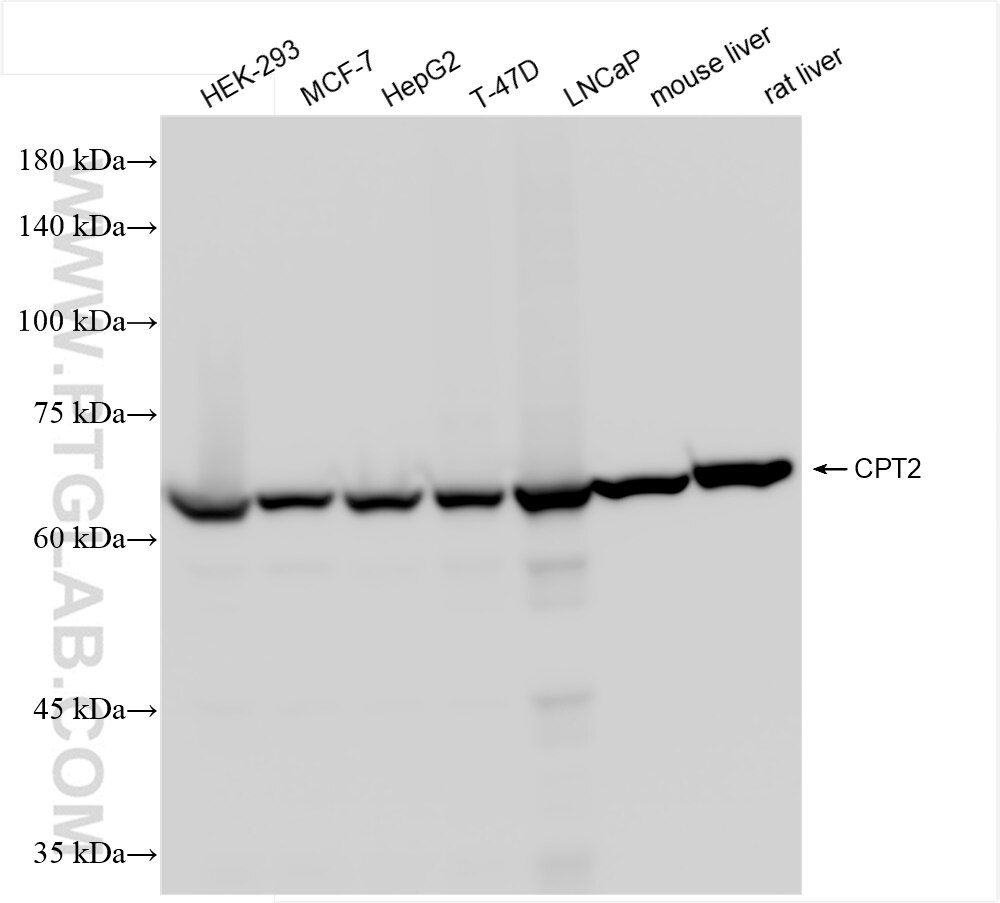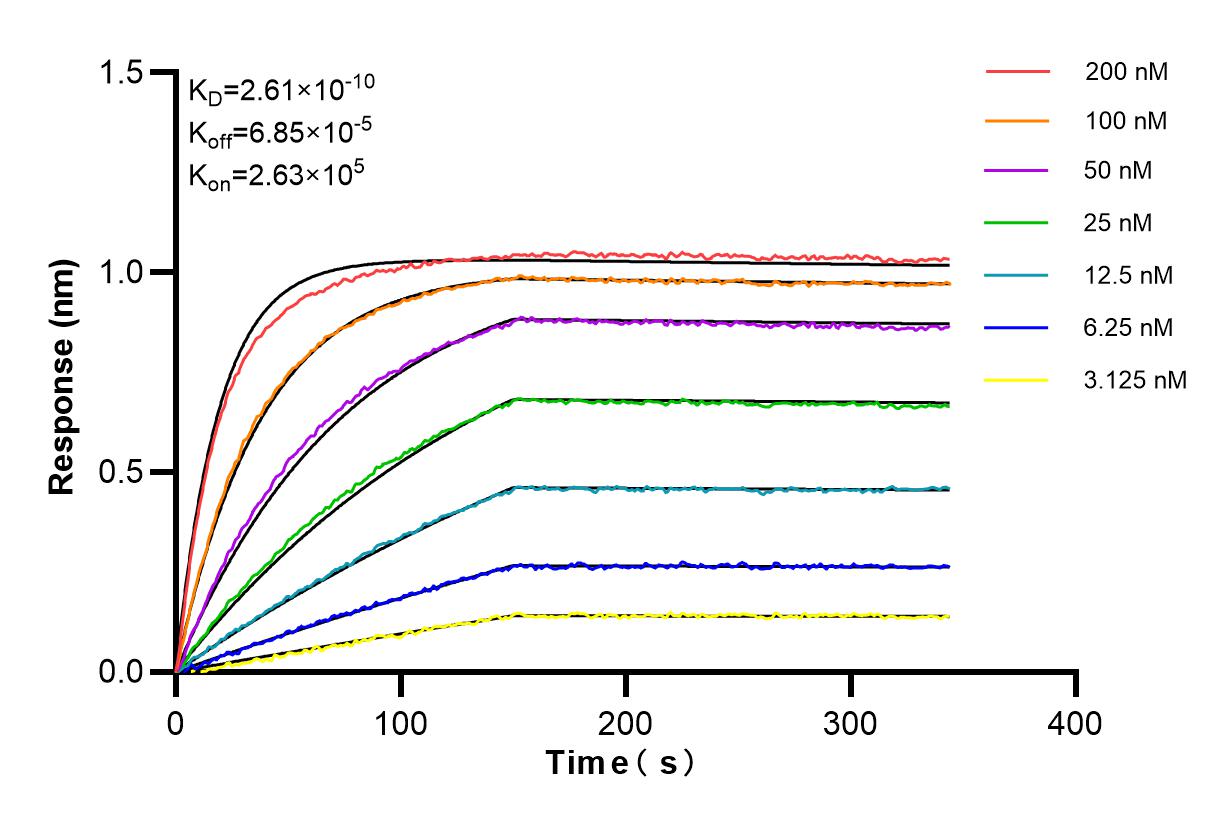Validation Data Gallery
Tested Applications
Recommended dilution
| Application | Dilution |
|---|---|
| It is recommended that this reagent should be titrated in each testing system to obtain optimal results. | |
Product Information
85013-4-PBS targets CPT2 in WB, Indirect ELISA applications and shows reactivity with human, mouse, rat samples.
| Tested Reactivity | human, mouse, rat |
| Host / Isotype | Rabbit / IgG |
| Class | Recombinant |
| Type | Antibody |
| Immunogen | CPT2 fusion protein Ag24897 相同性解析による交差性が予測される生物種 |
| Full Name | carnitine palmitoyltransferase 2 |
| Calculated molecular weight | 74 kDa |
| Observed molecular weight | 65-70 kDa |
| GenBank accession number | BC002445 |
| Gene Symbol | CPT2 |
| Gene ID (NCBI) | 1376 |
| Conjugate | Unconjugated |
| Form | Liquid |
| Purification Method | Protein A purfication |
| UNIPROT ID | P23786 |
| Storage Buffer | PBS only , pH 7.3 |
| Storage Conditions | Store at -80°C. |
Background Information
Carnitine palmitoyltransferase-1 and -2 (CPT1 and CPT2) are two genetically distinct mitochondrial membrane bound enzymes and play critical role in the regulation of FAO in normal cells. CPT2 is an ubiquitous protein and locates in the inner membrane of mitochondrial (PMID: 29437870). CPT2 is frequently down-regulated in primary ovarian serous carcinomas, which is significantly correlated with poor survival of ovarian cancer patients (PMID: 33486313). Down-regulation of CPT2 was a major cause of acylcarnitine accumulation and a common feature in mouse models of obesity- and NASH-driven HCC and human SH-HCC (PMID: 29872321).

